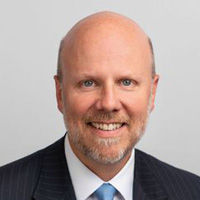Three 'Don'ts' for Charitable Giving in 2020
As you think ahead to how you can help make a difference in the new year, here are three things not to do.

Profit and prosper with the best of Kiplinger's advice on investing, taxes, retirement, personal finance and much more. Delivered daily. Enter your email in the box and click Sign Me Up.
You are now subscribed
Your newsletter sign-up was successful
Want to add more newsletters?

Delivered daily
Kiplinger Today
Profit and prosper with the best of Kiplinger's advice on investing, taxes, retirement, personal finance and much more delivered daily. Smart money moves start here.

Sent five days a week
Kiplinger A Step Ahead
Get practical help to make better financial decisions in your everyday life, from spending to savings on top deals.

Delivered daily
Kiplinger Closing Bell
Get today's biggest financial and investing headlines delivered to your inbox every day the U.S. stock market is open.

Sent twice a week
Kiplinger Adviser Intel
Financial pros across the country share best practices and fresh tactics to preserve and grow your wealth.

Delivered weekly
Kiplinger Tax Tips
Trim your federal and state tax bills with practical tax-planning and tax-cutting strategies.

Sent twice a week
Kiplinger Retirement Tips
Your twice-a-week guide to planning and enjoying a financially secure and richly rewarding retirement

Sent bimonthly.
Kiplinger Adviser Angle
Insights for advisers, wealth managers and other financial professionals.

Sent twice a week
Kiplinger Investing Weekly
Your twice-a-week roundup of promising stocks, funds, companies and industries you should consider, ones you should avoid, and why.

Sent weekly for six weeks
Kiplinger Invest for Retirement
Your step-by-step six-part series on how to invest for retirement, from devising a successful strategy to exactly which investments to choose.
The Tax Cuts and Jobs Act (TCJA) of 2017 nearly doubled the standard deduction and has changed the way some people approach their tax strategies. Despite the fact that the law reduced tax savings for each charitable dollar, charitable giving has increased, especially through donor-advised funds (DAFs) and the application of wise retirement investment planning.
As 2020 gets underway and tax season nears, here are three things to avoid as you plan your giving for the new year:
1. Don’t shy away from charitable giving during an election year.
Major election years leave many nonprofits nervous about the potential for declining contributions, but smart high-dollar donors who give via their private foundations or donor-advised funds distinguish between supporting charity and engaging politically. Proactive donors are knowledgeable about all the available tax-efficient charitable giving tools. Though the amount of money spent during the 2020 election cycle will no doubt be staggering, both private foundations and donor-advised funds will still continue to grow. These tools are available to any donor regardless of the number of zeros in their paycheck, but there is a reason that wealthy givers are staying ahead of the curve when it comes to maximizing their tax deductions!
From just $107.88 $24.99 for Kiplinger Personal Finance
Become a smarter, better informed investor. Subscribe from just $107.88 $24.99, plus get up to 4 Special Issues

Sign up for Kiplinger’s Free Newsletters
Profit and prosper with the best of expert advice on investing, taxes, retirement, personal finance and more - straight to your e-mail.
Profit and prosper with the best of expert advice - straight to your e-mail.
Best of all, these avenues are available to any donor, not just the wealthy. Some fully qualified DAFs, for example, now can be opened for as little as $5,000, allowing donors to wait until they’re ready to decide how to distribute their tax-advantaged investment in future years.
Remember, politicians come and go, but philanthropy has a much longer shelf-life.
2. Don’t fear ‘new age’ alternative ways of giving.
Gen Z and Millennial digital natives are increasingly engaging in online giving, including both straightforward transactions (credit card and recurring charges) and social community giving (e.g., GoFundMe campaigns). Moving forward, more people of all ages are expected to embrace this trend because of its immediacy and convenience. This option is especially attractive to those who prefer a more direct and personal approach to giving without concern about maximizing charitable tax deductions. And technology makes giving easier than ever: “Alexa, send a check to Children’s Hospital!”
Keep in mind, however, that it is charities that absorb credit card and other transactional fees. It’s nice to add a little extra so that they cover their costs.
3. Don’t ignore a major IRA tax advantage in the new law.
Some older taxpayers can sidestep the limitations of the TCJA. An individual retirement account (IRA) charitable rollover allows people age 70.5 and older to make direct transfers from their IRAs totaling up to $100,000 per year to qualified charities, without having to count the transfers as income for federal income tax purposes.
Also, some taxpayers can bunch gifts. A couple with $10,000 of state and local taxes, for example, would have to take the standard deduction if their only other itemizable expenses were contributions of $10,000 a year for each of five years. But the same couple might give away $50,000 in one year and nothing in the other four — thus gaining the advantages of both the increased standard deduction in the four years that they don’t itemize and a deduction for most of their charitable contributions in the one year that they do. Most importantly, this ensures a consistent revenue stream for charities over subsequent years.
The bottom line: Philanthropy is democratic. It is important to remember that anybody can participate in charitable giving — it is not limited to JUST the wealthy. Each individual citizen can use the power of giving (time, talent and treasure) to effect change despite, in spite of, or to spite government. And there are still ways to do it while being smart about taxes.
Profit and prosper with the best of Kiplinger's advice on investing, taxes, retirement, personal finance and much more. Delivered daily. Enter your email in the box and click Sign Me Up.

Lawson Bader has served as president and CEO of DonorsTrust since 2015. He has had 20 years' experience leading free-market research and advocacy groups, including the Competitive Enterprise Institute and the Mercatus Center. DonorsTrust is a community foundation safeguarding the intent of accountholders who seek to promote charities that address civic concerns, are mostly privately funded, do not increase the size and scope of government, and promote free enterprise and personal responsibility.
-
 Quiz: Do You Know How to Avoid the "Medigap Trap?"
Quiz: Do You Know How to Avoid the "Medigap Trap?"Quiz Test your basic knowledge of the "Medigap Trap" in our quick quiz.
-
 5 Top Tax-Efficient Mutual Funds for Smarter Investing
5 Top Tax-Efficient Mutual Funds for Smarter InvestingMutual funds are many things, but "tax-friendly" usually isn't one of them. These are the exceptions.
-
 AI Sparks Existential Crisis for Software Stocks
AI Sparks Existential Crisis for Software StocksThe Kiplinger Letter Fears that SaaS subscription software could be rendered obsolete by artificial intelligence make investors jittery.
-
 Social Security Break-Even Math Is Helpful, But Don't Let It Dictate When You'll File
Social Security Break-Even Math Is Helpful, But Don't Let It Dictate When You'll FileYour Social Security break-even age tells you how long you'd need to live for delaying to pay off, but shouldn't be the sole basis for deciding when to claim.
-
 I'm an Opportunity Zone Pro: This Is How to Deliver Roth-Like Tax-Free Growth (Without Contribution Limits)
I'm an Opportunity Zone Pro: This Is How to Deliver Roth-Like Tax-Free Growth (Without Contribution Limits)Investors who combine Roth IRAs, the gold standard of tax-free savings, with qualified opportunity funds could enjoy decades of tax-free growth.
-
 One of the Most Powerful Wealth-Building Moves a Woman Can Make: A Midcareer Pivot
One of the Most Powerful Wealth-Building Moves a Woman Can Make: A Midcareer PivotIf it feels like you can't sustain what you're doing for the next 20 years, it's time for an honest look at what's draining you and what energizes you.
-
 I'm a Wealth Adviser Obsessed With Mahjong: Here Are 8 Ways It Can Teach Us How to Manage Our Money
I'm a Wealth Adviser Obsessed With Mahjong: Here Are 8 Ways It Can Teach Us How to Manage Our MoneyThis increasingly popular Chinese game can teach us not only how to help manage our money but also how important it is to connect with other people.
-
 Looking for a Financial Book That Won't Put Your Young Adult to Sleep? This One Makes 'Cents'
Looking for a Financial Book That Won't Put Your Young Adult to Sleep? This One Makes 'Cents'"Wealth Your Way" by Cosmo DeStefano offers a highly accessible guide for young adults and their parents on building wealth through simple, consistent habits.
-
 Global Uncertainty Has Investors Running Scared: This Is How Advisers Can Reassure Them
Global Uncertainty Has Investors Running Scared: This Is How Advisers Can Reassure ThemHow can advisers reassure clients nervous about their plans in an increasingly complex and rapidly changing world? This conversational framework provides the key.
-
 I'm a Real Estate Investing Pro: This Is How to Use 1031 Exchanges to Scale Up Your Real Estate Empire
I'm a Real Estate Investing Pro: This Is How to Use 1031 Exchanges to Scale Up Your Real Estate EmpireSmall rental properties can be excellent investments, but you can use 1031 exchanges to transition to commercial real estate for bigger wealth-building.
-
 Should You Jump on the Roth Conversion Bandwagon? A Financial Adviser Weighs In
Should You Jump on the Roth Conversion Bandwagon? A Financial Adviser Weighs InRoth conversions are all the rage, but what works well for one household can cause financial strain for another. This is what you should consider before moving ahead.